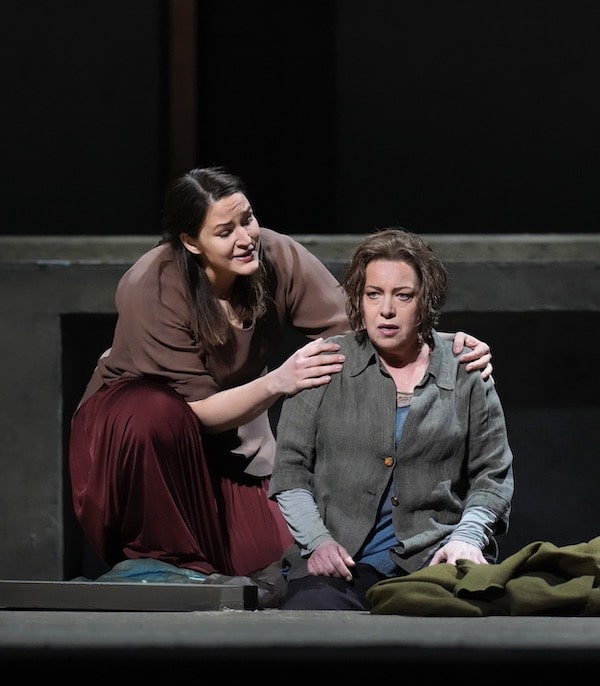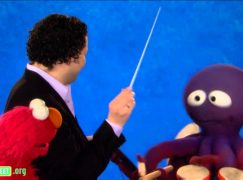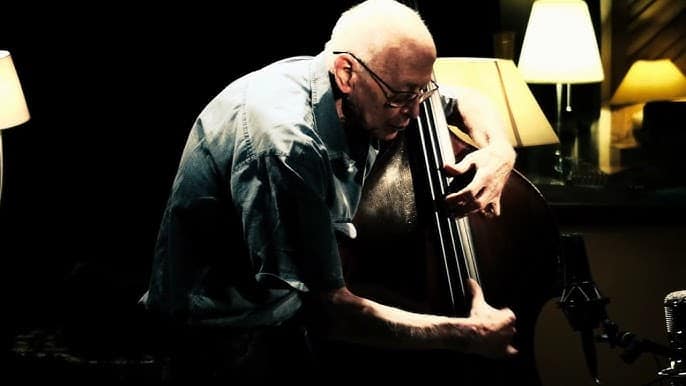Lise and Nina are the Met’s new powerhouse pair
NewsWhoever cast Nina Stemme with Lise Davidsen in Strauss’s Elektra has given the Met a pairing the rest of the world can only envy – ‘a cast that would be hard to equal’, writes Rick Perdian in New York Classical Review.
He goes on to say:
Although dissimilar in many ways, Stemme and Davidsen had a natural ease together on stage that made their sisterhood plausible. There is scant lightness in the drama, and the sisters’ relationship is complex, but Stemme exhibited a bit of playfulness when she straddled Davidsen, trying to convince her that it was her duty to murder Klytämnestra and Aegisth. One could imagine them in happier times, before their mother married the man who murdered their father, at play rather than at loggerheads.
Perhaps it was that chemistry that made Stemme’s Elektra appear lighter and more nuanced, both psychologically and vocally, than when she first appeared in the role at the Met in 2016.
Stemme’s voice has darkened a bit in recent years, but that only adds to the intensity of her Elektra. There were piercing high notes, but also ones that emerged full and vibrant, resounding through the hall.
Stemme’s Elektra was surprisingly feminine at times, especially during the Recognition Scene…
Davidsen was among vocal peers. At the first performance of Ariadne auf Naxos last month, the soprano at times overpowered the other singers on stage, but that was not the case Friday night. On the few occasions when Strauss permitted Chrysothemis to give full voice to her emotions, Davidsen filled the Met with thrilling sound as few singers can.
There was more, however, to Davidsen’s Chrysothemis than her voice, and Davidsen conjured up the young woman’s dreams as well. Youthful, impetuous and just a bit gawky, her Chrysothemis was at times skittish and at others determined. She is much like her mother with her willingness to let bygones be bygones, so that she can get on with life….
Read on here.
Joshua Barone writes in the NY Times:
… This concept demands singers who can truly act. And Stemme rises to meet it, if not always in voice then in dramatic intensity, which has only grown since she sang the title role in the Chéreau production’s first outing at the Met. She is never at rest: rocking as she stares straight ahead, her eyes wide open with laser focus on avenging her father, Agamemnon.
When Stemme sang of his death — a murder committed by Elektra’s mother, Klytämnestra, and her lover, Aegisth — her voice didn’t always cooperate, especially at the low end of her range. At times she visibly braced herself for the role’s most punishing outbursts. Yet she delivered them as if with dragon’s breath, matched only by passages of aching delicacy.
Davidsen, as Elektra’s sister Chrysothemis, gave her best performance at the Met this season — able to show a fuller range than in Wagner’s “Die Meistersinger von Nürnberg” last fall, and more in control of her immense instrument than during a recent run of Strauss’s “Ariadne auf Naxos” and a benefit concert for Ukraine, in which she sang that composer’s “Four Last Songs.” Typically a better actor through her voice than her physicality, here she carried as much character on her sorrowful face as Stemme did in her eyes….
photo: The Met/Ken Howard






both singers are absolutely terrific!
Having been at the Met for all of Davidsen’s outings to date, vocally, her Chrysothemis was much better than the others roles (or songs). Her voice was more modulated and in control, not just focused on her money notes. Admittedly, Electra is rather a scream-fest, so it played to Ms. Davidsen’s strengths.
However, she would do herself an immense favor if she worked with a movement coach. “Just a bit gawky” (Rick Perdian in NY Classical Review) was an apt description. Luckily, it could be passed off as characterization for Chrysothemis. I have my doubts her awkward stage movements were intentional.
Ms. Davidsen has a spectacular instrument and with experience she will work out her vocalism. They are not problems, per se, but a good case for continuing study.
An effective movement coach–not just the periodic stage direction in an individual production–would be a wise investment for the future.
I really want Ms. Davidsen to enjoy a long career without impediment. Her voice deserves it.
Stemme rocked it…
Sadly we don’t have any good belcanto singers for Rossni and Donizetti!
Not even Spyres or Brownlee?